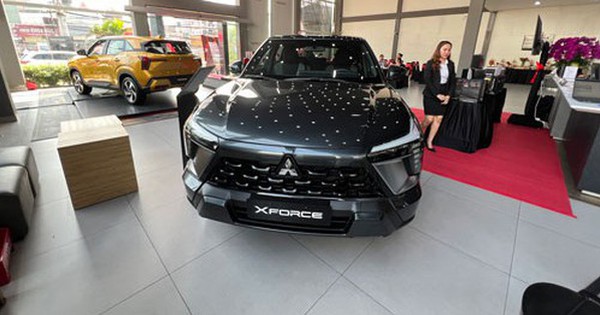Continuous Decline in Car Sales
The car sales market in Vietnam has been facing a continuous decline recently, raising concerns among industry experts. This decline is particularly surprising, considering that the final month of the lunar year is typically the strongest period for car sales, catering to the high demand during the Tet holiday season.
Unprecedented Drop in Sales
In January 2024, the car sales figures recorded a significant decrease, with only over 19,000 units sold, representing a 50% decline compared to December 2023. February 2024 didn’t fare any better, as the Vietnam Automobile Manufacturers Association (VAMA) reported a further drop in sales, with only 11,500 cars sold, a decrease of over 40% compared to the previous month. Even popular models witnessed a drastic decline in sales; for instance, the Ford Territory sold only 220 units, while previously, it had stable monthly sales exceeding 1,000 units. Similarly, the Toyota Vios dropped from over 2,000 units per month to a mere 170 units. Other models like the Kia Seltos, Honda CR-V, Honda BR-V, Toyota Yaris Cross, and Toyota Corolla Cross also struggled, achieving sales figures of around 100 to 200 units during February.

Thị trường ô tô tiếp tục rơi vào ảm đạm kể từ sau khi chính sách ưu đãi lệ phí trước bạ hết thời hạn thực hiện
Causes of the Decline
Experts have been analyzing the ongoing drop in car sales, highlighting various contributing factors. Thai Quang Huy, the Sales Director of Saigon Auto Gia Dinh Corporation, believes that in addition to the challenging economic conditions, the significant price reductions offered by many car manufacturers have led customers to wait for further discounts before making a purchase decision. “Some brands have announced new models, so many customers prefer to wait,” added Mr. Huy.
Dao Cong Quyet, a representative of VAMA, suggests that the sluggish car market is partly a consequence of the undeveloped real estate market, difficulties in credit activities, exports, and other sectors of the economy. These challenges have led to cash flow congestion, affecting the purchasing power of consumers. Furthermore, the expiration of the 50% vehicle registration fee incentive policy in December 2023 has significantly reduced car sales.
According to Tran Anh Tung, Head of Business Administration at the University of Economics and Finance in Ho Chi Minh City, the decline in the economy has influenced consumer buying behavior. Despite the reduction in interest rates by banks for personal consumer loans of less than 300 million VND, there are still few people taking advantage of these loans. Additionally, the increasing costs of driver’s license examinations and related expenses are indirectly influencing consumer decisions to purchase a car.
Tran Anh Tung further states that to own a personal car, individuals need to have an average income of at least 30 million VND. However, due to the lack of economic confidence, many people with this income level choose to keep their money in alternative assets such as gold and cryptocurrencies rather than buying a car. Moreover, the increasing popularity of affordable electric cars and used vehicles presents direct competition to traditional car models, making it harder for manufacturers to stimulate demand, even with price reductions.
Surplus of Used Cars
The lackluster demand for new cars has created an unexpected surplus of used cars in the market. Recognizing this shift, various car brands have implemented substantial price reductions to incentivize buyers. Mercedes-Benz Vietnam, for example, has announced significant price cuts of up to 700 million VND per vehicle for their 2022 models. Ford Vietnam is offering price discounts and a 3-year insurance package, along with a lucky draw with a prize pool of over 3 billion VND. Other car manufacturers such as Toyota, Subaru, and Volkswagen have also reduced prices by tens to hundreds of million VND per vehicle.
Nguyen Thi Hien, the owner of Hien Auto System in Ho Chi Minh City, points out that due to the high inventory of 2022 and 2023 models, car manufacturers have not imported as many vehicles into the Vietnamese market this year. Consequently, the used car business is also suffering from a scarcity of supply, as fewer used cars are being sold due to the low demand for new cars.
In conclusion, the continuous decline in car sales in Vietnam can be attributed to a combination of economic difficulties, the expiration of incentives, and shifting consumer preferences. The surplus of used cars in the market has further exacerbated the situation. To revive the market, car manufacturers must adapt to changing consumer demands and economic conditions, offering competitive pricing, attractive promotions, and innovative solutions.

